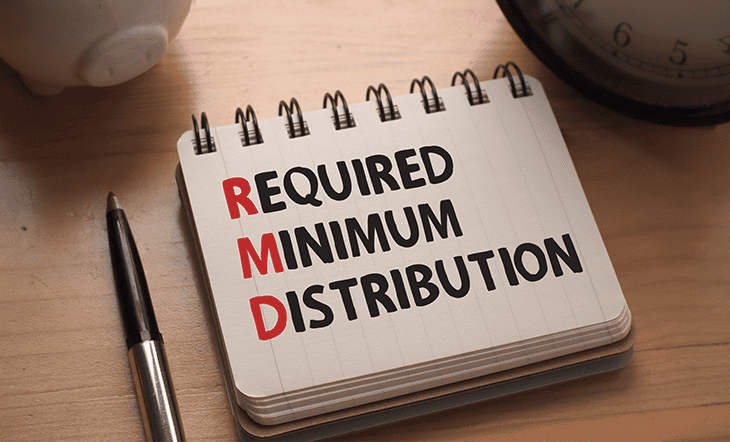Home > Retirement > What Inflation is and How You Can Protect Your Retirement Plan Against It
What Inflation is and How You Can Protect Your Retirement Plan Against It
Inflation is a cause of concern for retirees as it can quickly erode one’s retirement savings, leaving you with an insufficient corpus to match your planned retirement lifestyle. Moreover, it can also be tricky to account for when planning for one’s retirement, as no one can predict the rate of inflation in the future, let alone their retirement years. The money you start saving today may not sustain you if the prices of food, healthcare, or fuel rise in the future as a result of inflation. In such a scenario, you risk not meeting your saving goals for your retirement years. Instead, the money you save for retirement needs to grow over time to be able to fight inflation – that is, return at a rate that is more than the decrease in the value due to inflation.
Hence, having a sound retirement plan in place is crucial to be able to beat inflation. In this article, we will delve into what inflation is and how you can develop investing and saving strategies to ensure your retirement plan can combat inflation.
Table of Contents
What is inflation?
Before understanding the effects of inflation on retirement savings, one needs to understand what it means and translates to for an average tax-paying citizen.
Inflation is defined as a sustained increase in the average cost of goods and services over time. The prices of goods and services used daily like food, fuel, clothing, real estate, and other staples rise over time. Measured in percentages, inflation also reflects the purchasing power of a unit of a country’s currency.
Let us understand this with an example. A 15-ounce bag of chips cost $2.99 in 1990. With inflation and rising costs, the manufacturer raised the price of the product and shrunk the size of the bag. By 2010, an 11-ounce bag of the same chips cost $3.19.
In simpler terms, with rising inflation, it is not only the price of the product that rises but also the purchasing power of money that reduces with it. This implies that you will be able to purchase lesser goods in the future for the same amount of money as you do now. There is an inversely proportional relationship between inflation and purchasing power – high inflation will lead to a purchasing power dipping and vice versa.
What causes inflation?
The basic rule of demand and supply drives inflation. With high demand for a good/service and a limited supply, a gap is created and the commodity’s prices will skyrocket.
Another factor that causes inflation is the cost-push. This is when companies increase the cost of a product to remain profitable in the face of rising manufacturing costs.
In monetary inflation, money loses its purchasing power. This happens due to an oversupply of money in the economy. This makes the value of the currency go down, driving the prices of commodities upward.
Inflation can also lead to prices of commodities spiking when a particular currency loses its strength. For instance, crude oil is traded in the international market in US dollars. This means that countries have to convert their currencies to American dollars to trade oil. If the dollar is stronger, nations need more currency in dollar terms, increasing inflation in their countries.
What are the effects of inflation?
It might look like inflation is trouble. But this may not always be the case.
As inflation goes up, the prices of goods and services also soar. As a retiree or someone who is nearing retirement, you might find reasons to rejoice in an inflationary market if you have invested in commodities or property. However, at the same time, you might also find it to be burdensome due to the extra cost you need to shell out on a day-to-day basis.
That said, it is important to note that economists consider controlled inflation signs of a healthy economy. It encourages consumers to spend or invest money and bring money into circulation in the economy. Inflation becomes a cause for concern only when it increases uncontrollably and threatens to disrupt affordability in the country’s economy. For instance, uncontrolled inflation in Lebanon over the past few years scaled a record high with food prices increasing by as much as 400%. This is after Lebanon’s inflation rate increased from 2.9% to 84.9% in 2020.
U.S Inflation forecast
Inflation in the US is determined using the Consumer Price Index (CPI), Producer Price Index (PPI), and Personal Consumption Expenditures Price Index (PCEPI). While CPI is used to reflect inflation in the cost of goods, services, transportation, and real estate, PCEPI covers a broader range of expenditures.
The US inflation rate had been clipped under 2.7% since the last decade. However, the nation’s CPI scaled a 13-year high in June 2021 with an inflation of 5.4%. This came on account of sharp demand after some semblance of normalcy was restored in the country amid vaccine drives against the coronavirus.
This sudden burst in inflation is, however, unnerving, especially for those approaching retirement age or currently living off their retirement funds.
How does inflation affect retirement planning?
Simply being able to earn is not enough. Your money needs to grow over time to be able to fight inflation – that is, return at a rate that is more than the decrease in the value due to inflation. You do not want to save $100 for your retirement only to learn that the same $100 is worth less now or in the future than in the past. This is why one must opt for investment instruments that offer a higher rate of interest or returns to be able to beat rising inflation.
Inflation can be tricky to battle when planning for one’s retirement. For instance, if you save money starting today assuming your expenses to be a particular percentage during your retiral years, you may be surprised to learn that prices of food, healthcare, or even fuel have risen 5-10%. In such a scenario, the retiree is most likely to run out of money in their retirement years. No one can predict inflation. It is very easy for even the best-laid plans to fail because they did not take inflation into account.
No one can predict the future, but it is possible to estimate your expenses for the kind of lifestyle you desire, taking into consideration the effect of inflation. Reach out to a financial advisor to help you with creating an effective retirement plan. Connect with qualified financial fiduciaries using Paladin’s free matching tool.
The importance of making a retirement plan to sustain inflation
Having a sound retirement plan in place is crucial to be able to beat inflation. The sooner you start chalking out a retirement plan with an advisor, the sooner you will be able to start a fund that gets more time to earn interest and grow- ultimately beat inflation.
If one pushes their retirement plan to later years, they risk losing the compounding benefit of money. Compounding helps you accumulate a bigger corpus of money over time. Through compounding, your money earns interest, and your account balance amount becomes the principal amount on which the next interest is earned in the investment, and so on. Therefore, your money begets money through compounding – provided it is given the time to grow by investing early and staying invested.
Of course, retirement is a long-drawn process, and one needs to consider several aspects before zeroing down on one plan. Make sure that you take into account the price change for medicines, healthcare, food, clothing, and basic amenities before you decide on a figure that you need to live your retirement comfortably.
Investing in the right schemes is one of the most important things to keep in mind while planning for your retirement. For instance, if an investment gives an interest of 4% and the cost of food goes up by 6%, your savings will not be able to weather the storm and leave you with a fast-depleting fund.
Retirement strategies to protect your investments from inflation
1. Invest in high-return investments
Equity market and stocks are one’s best bet to beat inflation. Of course, there is a high risk in equities, but they have been shown to offer the best return in the long run. It is essential to start early so that your funds have more time to grow and so you may have time to correct any mistakes you may make during the journey. Your portfolio may need time to weather market fluctuations and grow into a corpus. However, ensure to check your financial health and assess your risk profile before you dive into stock investing. You can avoid a lot of risk by investing in very strong global companies that have strong balance sheets and good growth potential.
2. Avoid retiring prematurely
While early retirement may be enticing, there are benefits to working until the official retiring age. This way, you will be able to max out your paychecks that may be inflation-adjusted, which translates to a larger corpus and equivalent larger contributions to your retirement funds such as the 401(k) and IRAs. Your healthcare premiums also get an extra few months or years of boost that help towards building wealth.
Worried about how to meet the Rising Healthcare Costs in Retirement? Read our article on Paladin Registry to understand the
increase one may expect in medical expenses as you age and tips on how you can
go about planning for such expenses during your retirement.
3. Assume a higher rate of inflation
You don’t want to be caught off-guard; try to plan to brace a high rate of inflation. If the inflation is lower in the future, you win with an inflation-proof retirement plan that will outlive you. Reach out to a qualified retirement advisor to assess your financial situation and future requirements to draw up a comprehensive plan.
4. Stay invested for the long term
While encashing your investments when they have quadrupled may look enticing, staying invested for the long run may have more benefits in store for you. Most investment instruments tend to perform well over the longer term when you have given them the time to enlarge. This is one reason, and another being, you will be able to save it for your retirement instead of spending it on the go. That said, an exit strategy from investments must be in place even before you make your entry. As most millionaires quote, knowing when to exit is what makes a man wealthy. If an investment is giving you negative returns, assess it or discuss it with your financial advisor and make an informed decision that sits well with your retirement strategy and bodes well for your future. It is also important to note that short-term capital gains tax is generally charged at a higher rate than long-term capital gains tax. That’s another good reason to remain invested if you do not need your money immediately.
5. Pay off your mortgages at the soonest
With rising inflation come loans with higher interest rates. Try paying off mortgages before you retire. Remember that the worth of your money today is higher than its value in the future because of inflation. You want to capitalize on this and pay as much as possible to bring down your debt levels or try to close the loans. When the cost of goods and services is higher in the future on the back of higher inflation, it may pinch you more to pay your EMIs.
6. Defer your social security benefits
Social security benefits look attractive when one mulls taking the payments. However, try deferring it as long as you can. Although social security payments are inflation-protected, deferring taking payments makes them protected to further inflation while the fund grows in your account. Deferring social security benefits may also have a tax advantage. Consult your retirement advisor to discuss social security withdrawals.
7. Consider living an active lifestyle
This one is not necessarily a strategy to save your retirement plan from inflation but helps to buffer your savings through your retirement period. Consider taking small gigs like consulting, freelancing, or working part-time that will help you get a few extra dollars into your pocket during your retirement days. This will not only help towards meeting day-to-day expenses while your retirement fund earns you interest, but it will also help to keep your mind active and sharp that can go a long way in creating a better lifestyle and minimize health concerns that come with age.
Bottom line
Investors must not be afraid of inflation; some amount of inflation is healthy. All you need is a foolproof plan to not let inflation get the better of your retirement savings.
While inflation can be a cause of concern, there are several strategies investors can use to stave off inflation and give your savings the boost it needs. Most strategies are easy to implement, but it is always recommended to consult a retirement advisor before taking any decisions.
Have you taken inflation into consideration? Need help protecting your retirement funds from inflation? Use Paladin Registry’s free match tool and get connected and get connected with 1-3 professional financial fiduciaries that may be suited to help you. You may set up an interview with the financial advisors before you decide to engage with one.
For additional questions on the most suitable retirement plan for your financial needs, visit Dash Investments or email me directly at dash@dashinvestments.com.
About Dash Investments
Dash Investments is privately owned by Jonathan Dash and is an independent investment advisory firm, managing private client accounts for individuals and families across America. As a Registered Investment Advisor (RIA) firm with the SEC, they are fiduciaries who put clients’ interests ahead of everything else.
Dash Investments offers a full range of investment advisory and financial services, which are tailored to each client’s unique needs providing institutional-caliber money management services that are based upon a solid, proven research approach. Additionally, each client receives comprehensive financial planning to ensure they are moving toward their financial goals.
CEO & Chief Investment Officer Jonathan Dash has been covered in major business publications such as Barron’s, The Wall Street Journal, and The New York Times as a leader in the investment industry with a track record of creating value for his firm’s clients.
Other posts from Jonathan Dash
Things You Should Know About RMDs if You Are Turning 73
Retirement accounts like the 401(k) and the Individual Retirement Account (IRA) are broadly classified as traditional, and Roth based on their taxability....
Should You Keep Your Money with Your Employer’s 401(k) Plan After You Retire?
One critical financial decision looms large as you approach retirement - how does a 401(k) work when you retire?...
6 Reasons Your Retirement Plan Might Change and How to Prepare For it
Planning for retirement is an essential part of securing a financially stable future. It can help you live...




